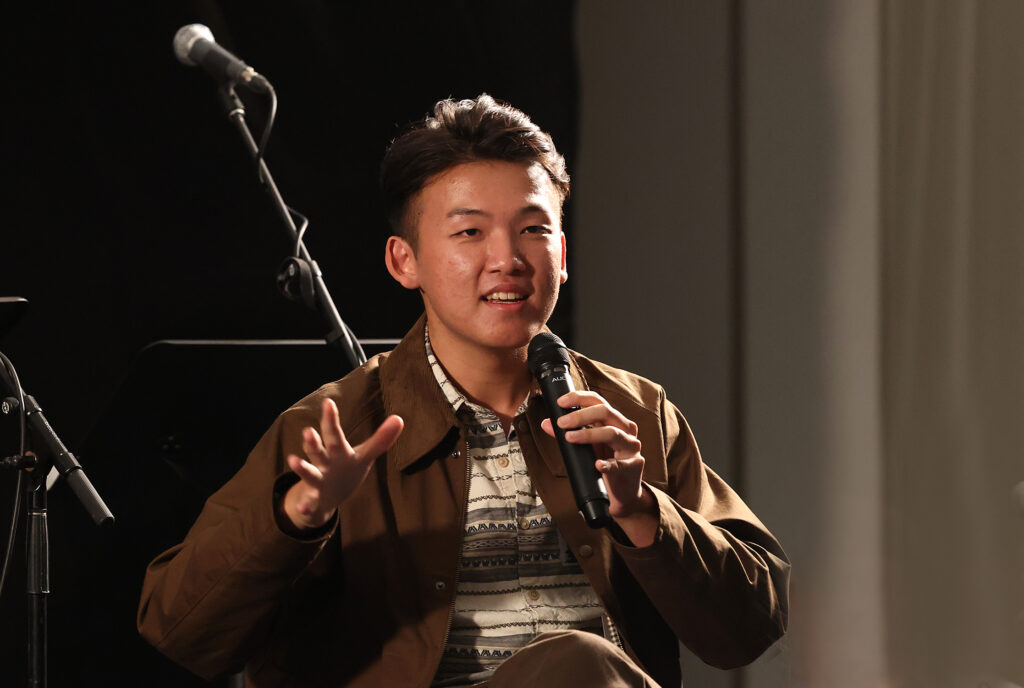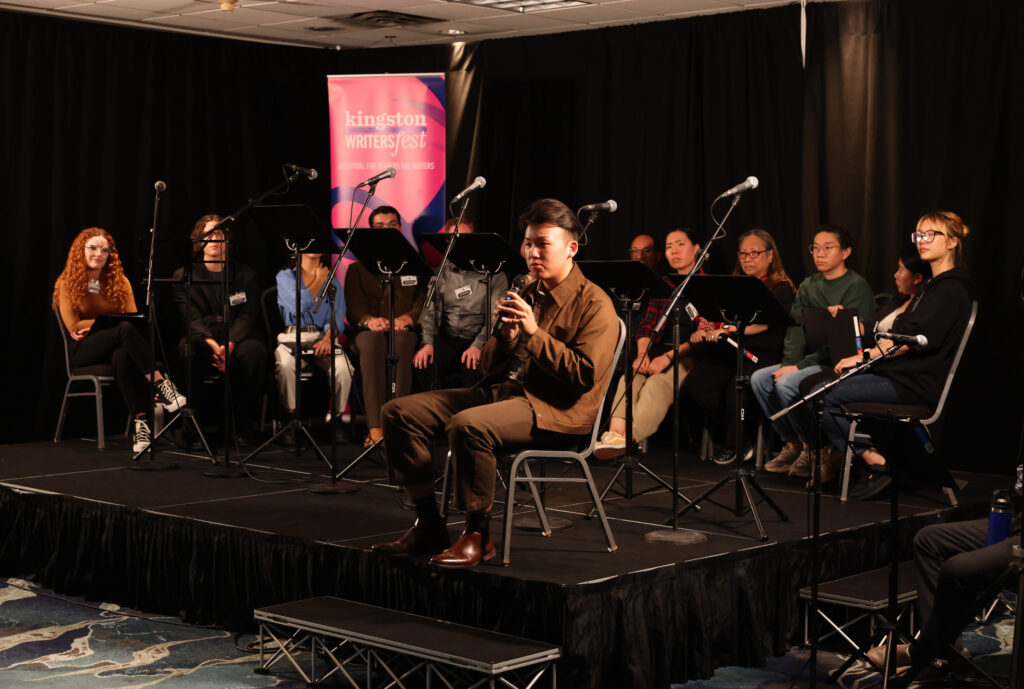Science Fiction Takes the Stage with Playwright Brandon Zang

Steampunk, solarpunk, cyberpunk, and sci-fi—when you think of live theatre, these probably aren’t the first words that come to mind. Well, tether your top hats and hold on to your cybernetic limbs: award-winning playwright Brandon Zang is on a science fiction kick, and he’s taking us with him.
Zang is the 2023 winner of the Voaden Prize Playwriting Competition, a biennial award presented to Canadian playwrights by Queen’s University. This fall, Kingston WritersFest and the DAN School of Drama and Music hosted a stage reading of his winning play, Ah Wing and the Automaton Eagle.
This interview has been edited for length and clarity.
Zang’s enthusiasm for sci-fi and fantasy is palpable—even over Zoom, where I reached him for a conversation recently. “I identify as a sci-fi and fantasy playwright. I write very broadly in these genres. As a massive sci-fi reader and enjoyer, and also a playwright, they’re not mutually exclusive. Combining those two things is really interesting to me… I read a lot of plays, and a lot of literary science fiction, but I haven’t seen or read a lot of theatre that goes into those worlds.”
Set in 1877, Ah Wing and the Automaton Eagle follows a young artificer who lives with his mother and sister in San Francisco’s Chinatown. After the death of his father, Ah Wing sets out to finish one of his father’s projects: building a sentient automaton eagle. “I wanted to use the tools of the genre in order to expose, but also alienate, but also bring us closer to some truths and realities. [The play] is inspired by a real historical event in San Francisco, but set in an alternate steampunk reality. So it’s sort of in the middle of historical fiction and science fiction.”
The world Zang has built for Ah Wing draws from steampunk, a subgenre of science fiction named after 19th-century steam-powered technology. Although people today may associate the term with goggles and gears, it’s more than a visual aesthetic: “Steampunk began as a social critique. It’s about the excessiveness of industrialization of that time. I really want to bring it back to its roots, especially about BIPOC people. You can’t talk about industrialization at that time without talking about imperialism, and colonialism—and, you know, the people who are actually doing the labour and are being exploited for those things.”

These days, Zang has his sights set on the near future, with a new play, Gingko Express, set in 2099. “It’s solarpunk. I’m going back to my genre roots… using genre to tell the story in subversive ways. I read a lot of solarpunk over the summer. And I was fascinated by this genre—I think it’s more of a philosophical approach, or a way of looking at the world. I love the optimism of it.”
Zang has noticed a recent rise in cyberpunk, which he sees as having the same pitfalls as its sepia-tinted cousin, steampunk. “It started as this criticism of capitalism, or, you know, hyper capitalism in the future with technology… but it’s now become this aesthetic. It’s like, ‘Wow, it’s so pretty. Wouldn’t it be so great to live in this pretty cyberpunk, deeply unjust world?’”
Solarpunk, which developed in response to cyberpunk, offers a different approach: “Let’s think about a world in which we have a good relationship with technology, and maybe that relationship with technology can heal our relationship with nature. Or in general, can we think about a future that is post-apocalyptic? I was really attracted to that, and to the diversity of the works—people really went off in different directions with that genre.”
The climate crisis looms large in Zang’s psyche. “I wanted to have my own interpretation of [solarpunk], because I’ve been thinking a lot about being an artist in this time when the world is ending—thinking about not only the theatre industry, but in general, the climate crisis and what it means to be an artist now. The play is reflective of my meditations on that.”
“Gingko Express is [about] trying to bring two gingko trees together, because gingko trees need a male and a female in order to reproduce… Both stories are dealing with different things in a sort of mid-apocalypse future. But the focus is on these characters… and what it means to love and to lose.”
Balancing world-scale problems with interpersonal relationships is an important element of both Ah Wing and Gingko Express. “I think that’s what sci-fi theatre is specifically equipped to do. Theatre is so good at forcing you to sit in this claustrophobic room and see relationships up close. That’s the kind of thing that no other medium I’ve ever seen can do at that level. So I want to take advantage of that, as well as [sci-fi’s] worldbuilding, which I love.”
Brandon Zang is a sci-fi and fantasy playwright who uses worldbuilding to distance, deconstruct, and dissect the complex issues of today. To learn more about his past and future projects, visit his website.
This article was edited on December 1st, 2023 to update formatting.